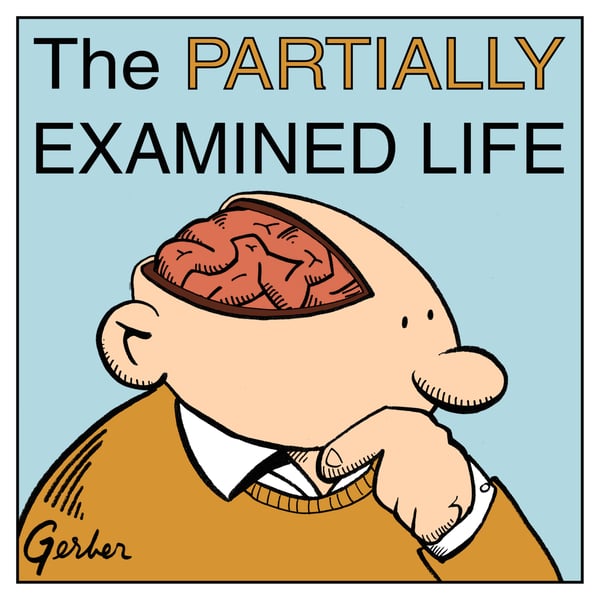Ep. 369: Philippa Foot's Naturalistic Ethics (Part Two)
The Partially Examined Life Philosophy Podcast
Mark Linsenmayer
4.6 • 2.3K Ratings
🗓️ 23 June 2025
⏱️ 47 minutes
🧾️ Download transcript
Summary
Continuing on Natural Goodness, getting more into concrete cases of moral reasoning. How and why do we decide to keep promises, even in cases where violating them would produce more utility? How do we take into account different kinds of grounds in moral reasoning?
Get more at partiallyexaminedlife.com. Visit partiallyexaminedlife.com/support to get ad-free episodes and tons of bonus discussion, including a supporter-exclusive part three to this discussion.
Sponsor: Visit IDOU.com/PEL for 15% off online courses on using AI in creative, human-centered ways.
Transcript
Click on a timestamp to play from that location
| 0:00.0 | Today's episode is brought to you by IDOU. |
| 0:02.9 | For a limited time, IDOU is offering our listeners 15% off sitewide. |
| 0:06.7 | Go to IDOU.com slash PEL. |
| 0:17.1 | You're listening to Partly Examineamine Life episode 369, part two. |
| 0:22.6 | We've been discussing Philipa Foote's book, Natural Goodness, and we've got a lot of overview. |
| 0:28.6 | I think we want to dive more, more into the actual text and giving quotes and things, |
| 0:33.6 | and not just taking our word for the fact that some of this is confusing. |
| 0:38.4 | So I think we're still in chapter one here, just about 11 pages in. |
| 0:42.5 | So I think the next she's going to say that, you know, as we've said, |
| 0:46.7 | goodness has to be built into practical rationality from the ground up. |
| 0:51.2 | And she'll make the claim on pages 14 to 15 that no one can act with full practical |
| 0:58.9 | rationality in pursuit of a bad end, even if they do it really well, right? Even if it's done |
| 1:03.6 | quote unquote rationally, like I said, with a knife being good at robbing someone, for instance, |
| 1:08.9 | and pulling all that off perfectly. |
| 1:11.9 | So morality, and this is where she says she agrees with Kant, morality is concerned |
| 1:16.9 | specifically with goodness of the will. But she wants to ground that in essential features of a |
| 1:26.1 | specifically human life. |
| 1:28.6 | And that's what's going to lead us to this analogy with plants and animals, where we can talk |
| 1:32.5 | about rationality or the will as a characteristic of human beings that we can treat on |
| 1:39.8 | analogy to say roots in a plant. |
| 1:42.8 | And we can say whether it's functioning properly or not on that |
| 1:47.2 | analogy. Right. So even though Kant takes us his first step, that only morality always has to come |
... |
Please login to see the full transcript.
Disclaimer: The podcast and artwork embedded on this page are from Mark Linsenmayer, and are the property of its owner and not affiliated with or endorsed by Tapesearch.
Generated transcripts are the property of Mark Linsenmayer and are distributed freely under the Fair Use doctrine. Transcripts generated by Tapesearch are not guaranteed to be accurate.
Copyright © Tapesearch 2025.

